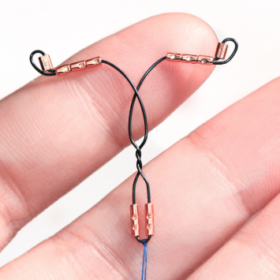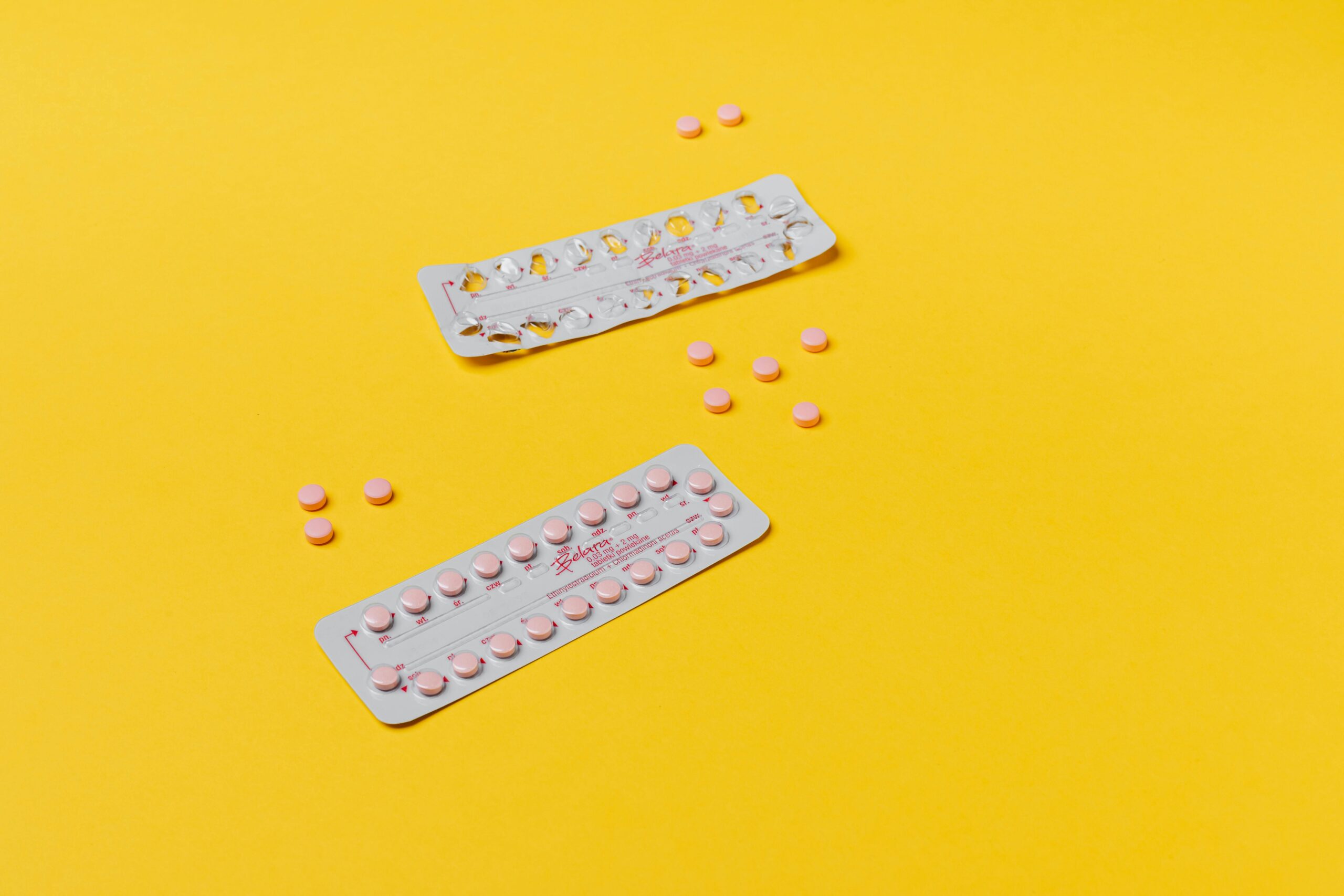
The contraceptive injection – Everything you need to know
In this article
What's the lowdown?
The contraceptive injection is a progestogen-only method of contraception that comes in three types: The Depo-Provera, the Sayana Press and the Noristerat
It can take between several months to over a year for your fertility to return to normal after stopping the injection
The injection is the only method of contraception where weight gain is a proven potential side effect
The contraceptive injection can impact your periods, causing them to be heavier, lighter, shorter or irregular. The majority of women experience no periods altogether.
You can now buy the Sayana Press injection directly from The Lowdown.
This post contains affiliate links we have vetted and receive a small commission from.
The contraceptive injection is a little different from all the other contraceptives. This contraceptive does not need to be inserted into the vagina or taken orally, meaning in terms of convenience, it’s already a winner. If you’re done with having to remember to take the pill every day and also cringe at the thought of the coil, then this convenient contraceptive could be the answer to all of your prayers!
Remember, the only contraceptive that also protects you from sexually transmitted infection is the condom!
What is the contraceptive injection?
The contraceptive injection contains a hormone called progestogen which is similar to the hormone our body produces.
There are three types of injection;
- Depo-Provera is the most commonly given in the UK and lasts for 13 weeks
- Sayana Press also lasts for 13 weeks and is a newer option which can be self-injected
- Noristerat only lasts 8 weeks and is not commonly used in the UK.
Check out our blog comparing Depo-Provera and Sayana press.
How effective is the contraceptive injection?
The contraceptive injection is in the group of long-acting reversible contraceptives which have the highest protection rates against pregnancy. With perfect use, i.e. you don’t miss or are late for a jab, the injection is 99% effective. With typical use, the injection is between 94% to 98% effective.
How does the contraceptive injection work?
The injection steadily releases the hormone progestogen into your bloodstream. It prevents pregnancy in three ways – by stopping ovulation, by making the fluid in your cervix thicker (which makes it more difficult for sperm to enter the womb), and by preventing the lining of your womb thickening enough for an embryo to grow in it.
How do I get started on the contraceptive injection?
You can get the injection from your GP, practice nurse or local sexual health clinic. You can also now buy the Sayana Press injection through The Lowdown website.
You will be asked questions about your past medical history and your family history. It is important to make sure there is no risk of pregnancy when you start the injection so you should avoid sex or use another method of contraception from your last period or in the 3 weeks leading up to the injection.
You can then start the injection at any time during your period cycle. If you have it within the first five days of your cycle, you will be protected from pregnancy straight away. Any other time in your cycle and you’ll need to use condoms for 7 days before it is effective.
If you are switching from another hormonal method of contraception you should seek advice from a healthcare professional about when to start and whether to use additional contraception for the first 7 days.
You can have the injection straight after giving birth or pregnancy. If you have the injection within 21 days after giving birth it works to prevent pregnancy immediately. If you have it 21 days after giving birth, you will need to use condoms for 7 days. The contraceptive injection is safe to use while breastfeeding and has no effect on milk production.
You will be given the injection as you would a standard jab.
- Depo-Provera can also sometimes be given in the buttock or arm.
- Sayana Press is injected beneath the skin at the front of the thigh or abdomen. You can be taught how to give yourself the injection, rather than having a doctor or nurse give it to you.
How do I stop the contraceptive injection?
Before you get the injection, it’s good to know that it can take between several months to a year for your fertility to return to normal after stopping.
To stop, all you need to do is not have your next injection – if you don’t want to get pregnant then you should use another method of contraception from the day that your next injection would have been due.
Always remember to take folic acid and vitamin D (buy from Amazon) if you are planning a pregnancy. These are Amazon affiliate links for supplements our doctors recommend – we earn a small commission too
Contraceptive injection pros and cons
Pros
- A contraceptive that doesn’t need to be taken daily
- It’s not affected by other medicines including antibiotics
- It is not affected by vomiting or diarrhoea
- Doesn’t interrupt sex
- Great for stopping periods, 69% of The Lowdown users report that the injection stopped their periods (data taken from November 2024). This may also help people with endometriosis, heavy bleeding, migraines or premenstrual syndrome (PMS)
- Safe to use whilst breastfeeding and straight after pregnancy
Cons
- The injection can impact your periods, causing them to be heavier, lighter, shorter or irregular which may not be acceptable to you.
- There may be an association with weight gain for some people
- The injection can affect your bone health
Who should use the contraceptive injection?
People who:
- cannot use contraception that contains oestrogen
- cannot remember to take a pill every day
- are breastfeeding
- want their periods to stop or get lighter
Who shouldn’t use the contraceptive injection?
People who:
- want their fertility to return to normal immediately after finishing on a contraceptive or are planning pregnancy in the next year
- don’t want their periods to change
- are at risk of osteoporosis (we talk about what that means in a later section)
- are needle phobic
- are on blood thinners like warfarin. However, you could try the Sayana Press rather than Depo-Provera as the needle is smaller so there is less chance of severe bruising
- have breast cancer
- have severe liver disease
Side effects
As with all contraceptive methods, people may experience a range of different side effects or none at all. The injection can’t be removed from your body. If you have any side effects, you have to be prepared for them to continue during the 8 or 13 week period, and for some time afterward.
The below side effects are some of the most frequently reported from users of the contraceptive injection;
- Vaginal dryness
- Enlarged breasts
- Tender breasts
- Vaginal discharge
- Back pain
- Loss of sex drive
Check out our reviews for more information on possible side effects of the injection.
How will the contraceptive injection affect my periods?
The contraceptive injection can impact your periods, causing them to be heavier, lighter, shorter or irregular. The majority of women experience no periods altogether. In research studies nearly 50% of women have no periods at all after using the injection for 12 months. These side effects are temporary and your period should go back to normal within a few months of your last injection, although for some women this can take up to a year after stopping.
After the injection has been given, you will only need to go back to your doctor or nurse if you have any problems or when you need a new injection. If you are using the Sayana Press (which you injected yourself at home), you will need a review each year to get a new supply, but this may not need to be in person.
What to do if if I am late for my injection?
The injection should be given every 13 weeks. If it has been more than 14 weeks since your last injection, you need to take extra care. Book in for your Depo or give your Sayana Press as soon as possible. You should have sex using a condom or avoid sex until 7 days after you have had the next injection (which gives the injection time to work again). If you have had unprotected sex (without a condom, or a condom failure) since the injection was due, you should speak to a healthcare professional as you may require emergency contraception to prevent an unplanned pregnancy.
What are the issues about weight gain with the injection?
The injection is the only method of contraception where weight gain is a potential side effect that women should be counselled for. If you are under 18 with a BMI of over 30 when you begin using the injection or if you gain more than 5% of your body weight within six months of starting the injection as you are more likely to continue gaining weight.
What does this mean to me? We suggest that you keep a close eye on your weight during the first 6-12 months of using the injection. If your weight is going up and you are unhappy with it then the contraceptive injection may not be right for you.
See our article all about weight gain and loss on contraception.
What are the issues about bone health and osteoporosis?
This is a really good question and often one that confuses contraception users as well as doctors and nurses alike. Unfortunately, at The Lowdown we hear of people being turned down for the injection based on this issue of bone health. Hopefully, this section can help dispel the myths around how the injection affects bone health.
We talk about bone health in terms of bone mineral density (BMD) which is how strong or thick your bones are. This can be affected by lots of things including getting older, being very underweight, smoking, low physical activity, drugs like steroids… the list goes on… The injection is linked with a small drop in your bone mineral density which recovers when you stop using it.
Osteoporosis is a term for a medical condition where the bones become brittle and fragile. This puts you at risk of breaking bones. The contraceptive injection does not give you osteoporosis. There were no links found between using the injection and getting broken bones.
Why all the worry? If people are at risk of getting osteoporosis, you don’t want to have any extra bone thinning even if it is just whilst on the contraceptive injection. This means that people with the following risk factors should probably only use the injection for the shortest period of time.
- If you or a close family member have osteoporosis
- If you have very low weight or anorexia
- If you are a heavy smoker
- If you are a heavy drinker
- If you are on long-term steroids
If you haven’t fully finished growing yet then you might want to look at other contraceptive methods until you have, usually around 18 years old but we are all different. If you’re over 50 you’ll be advised to switch to a different method until the age of 55 or the menopause.
But remember it is your choice and you have the right to decide about your risks.
If you want the injection, look at ways to keep bones healthy, for example, stopping smoking, regular exercise or taking vitamin D is great for your bones. You will have a regular review with your doctor or nurse to check you are doing all you can to keep your bones strong.
Our medical review process
This article has been medically reviewed for factual and up to date information by a Lowdown doctor.








